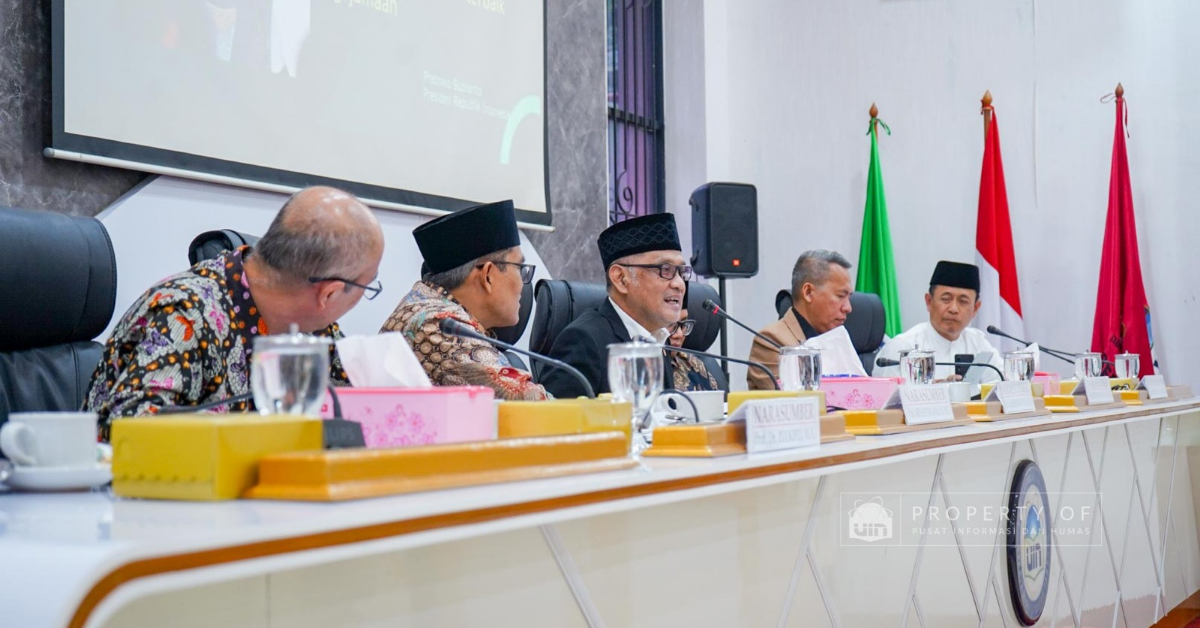Minister of Hajj and Umrah Ensures Improvement of Indonesian Hajj Services
Prof. Suwito Auditorium, UIN Online News — Minister of Hajj and Umrah, Dr. KH Moch Irfan Yusuf, M.Si., underscored his ministry’s commitment to improving hajj services for Indonesian pilgrims during a public lecture hosted by the Graduate School (SPS) of UIN Jakarta in collaboration with the Hajj Financial Management Agency (BPKH) at the Prof. Suwito Auditorium on Thursday (September 11, 2025).
In his remarks, he noted that the government has prepared 34 hajj dormitories across 33 provinces as well as service offices in almost every region. However, he acknowledged that not all facilities have been used optimally, calling for evaluations to ensure they truly benefit the pilgrims.
Hajj dorms and service offices are already in place across the country, but some are not yet fully utilized. Evaluations are necessary so that these assets can provide maximum benefit to the pilgrims,” he stated.
Reflecting on the ministry’s history, he highlighted that the establishment of the Ministry of Hajj had been envisioned by the president since 2014, reinforced in 2019, and finally implemented in 2024.
“The appointment for a new executive branch, the Ministry of Hajj and Umrah, is a bold initiative by Prabowo Subianto. If it fails, the consequences fall directly on him. That’s why this ministry must succeed in delivering the best possible services,” he stated.
On governance, the minister stressed the importance of strict oversight of hajj funds.
“Hajj management must be free from corruption. We are implementing reforms, from staff transfers to asset restructuring, to make the system more transparent and accountable,” he assured.
By drawing comparisons with Malaysia’s subsidy model, he argued that such an approach is possible and equitable at the same time.
“In Malaysia, subsidies are applied variably—60 percent, 30 percent, or none at all. It is better than applying cross subsidy to everyone. Thus, it can help ease the burden on pilgrims,” he elaborated.
He asserted that improving hajj services is a shared responsibility since the transformation of hajj management is in progress by ensuring proper services for Indonesian pilgrims.
Finally, he expressed optimism that collaboration between the government, BPKH, universities, and stakeholders will elevate the hajj experience beyond a ritual into a vessel for strengthening the nation’s economy and civilization.
“Our goal is to ensure that Indonesian pilgrims receive the highest quality services—not only in their worship but also in terms of health, economic support, and cultural enrichment. The hajj must be a platform that empowers individuals while strengthening the nation as a whole religious organization,” he affirmed.
(Fathan Rangga I./Fauziah M./Zaenal M./Muhamad Arifin Ilham/Photo: Tiara Abdhie)

